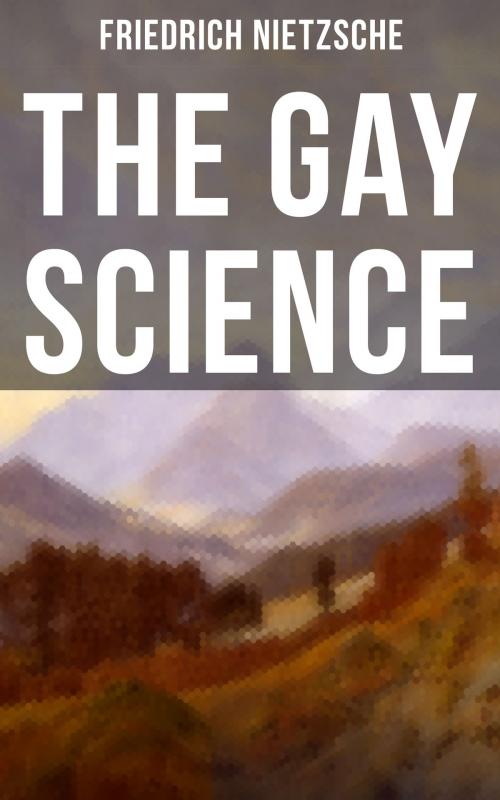The Gay Science
From World's Most Influential Philosopher and the Author of The Antichrist, The Genealogy of Morals, Thus Spoke Zarathustra, The Birth of Tragedy & Beyond Good and Evil
Nonfiction, Reference & Language, Education & Teaching, Educational Theory, Philosophy & Social Aspects, Religion & Spirituality, Philosophy| Author: | Friedrich Nietzsche | ISBN: | 9788027220823 |
| Publisher: | Musaicum Books | Publication: | October 6, 2017 |
| Imprint: | Language: | English |
| Author: | Friedrich Nietzsche |
| ISBN: | 9788027220823 |
| Publisher: | Musaicum Books |
| Publication: | October 6, 2017 |
| Imprint: | |
| Language: | English |
In "The Gay Science or, The Joyful Wisdom," Nietzsche experiments with the notion of power. The book contains Nietzsche's first consideration of the idea of the eternal recurrence, a concept which would become critical in his next work Thus Spoke Zarathustra and underpins much of the later works. The book's title uses a phrase that was well known at the time. It was derived from a Provençal expression (gai saber) for the technical skill required for poetry-writing that had already been used by Ralph Waldo Emerson and E. S. Dallas... Excerpt: "A bad conscience is easier to cope with than a bad reputation." "Those who know that they are profound strive for clarity. Those who would like to seem profound to the crowd strive for obscurity. For the crowd believes that if it cannot see to the bottom of something it must be profound. It is so timid and dislikes going into the water." Friedrich Nietzsche (1844–1900) was a German philosopher, poet, and Latin and Greek scholar whose work has exerted a profound influence on Western philosophy and modern intellectual history. Because of Nietzsche's evocative style and provocative ideas, his philosophy generates passionate reactions. His works remain controversial, due to varying interpretations and misinterpretations of his work. In the Western philosophy tradition, Nietzsche's writings have been described as the unique case of free revolutionary thought, that is, revolutionary in its structure and problems, although not tied to any revolutionary project.
In "The Gay Science or, The Joyful Wisdom," Nietzsche experiments with the notion of power. The book contains Nietzsche's first consideration of the idea of the eternal recurrence, a concept which would become critical in his next work Thus Spoke Zarathustra and underpins much of the later works. The book's title uses a phrase that was well known at the time. It was derived from a Provençal expression (gai saber) for the technical skill required for poetry-writing that had already been used by Ralph Waldo Emerson and E. S. Dallas... Excerpt: "A bad conscience is easier to cope with than a bad reputation." "Those who know that they are profound strive for clarity. Those who would like to seem profound to the crowd strive for obscurity. For the crowd believes that if it cannot see to the bottom of something it must be profound. It is so timid and dislikes going into the water." Friedrich Nietzsche (1844–1900) was a German philosopher, poet, and Latin and Greek scholar whose work has exerted a profound influence on Western philosophy and modern intellectual history. Because of Nietzsche's evocative style and provocative ideas, his philosophy generates passionate reactions. His works remain controversial, due to varying interpretations and misinterpretations of his work. In the Western philosophy tradition, Nietzsche's writings have been described as the unique case of free revolutionary thought, that is, revolutionary in its structure and problems, although not tied to any revolutionary project.















